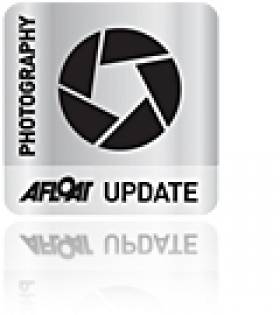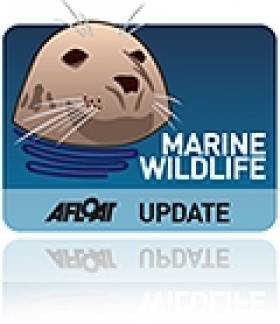Displaying items by tag: George Karbus
Clare Photographer Nets Top Award for 'Surfing' Dolphin
#MarineWildlife - A fantastic snapshot of a surfing dolphin has netted a Clare-based photographer the prestigious top prize at the British Wildlife Photographer of the Year awards, as the Mail Online reports.
Czech-born George Karbus captured the winning image, titled 'In the Living Room', while diving off Ballintoy in Co Antrim, when he encountered the "playful" bottlenose dolphin "that suddenly started to surf the deep tube inside the waves".
As reported by TheJournal.ie, Karbus added: “Water visibility is always very limited in Ireland, and I was very lucky to get a shot like this.”
The photographer also topped the coastal and marine category at this year's awards, and his prize photo will be featured in a book compiling the top entries.
Karbus was previously featured on Afloat.ie in 2011 for his stunning images of fin whales and dolphins feeding off Hook Head in Co Wexford.
Stunning Images of Feeding Fin Whales
The Irish Times has stunning photographs of fin whales and dolphins feeding off Hook Head in Co Wexford captured by animal wildlife photographer George Karbus.
Czech-born Lahinch resident Karbus, who specialises in wildlife photography, said: “It is really hard to capture images of fin whales because they move incredibly fast, so to see them together feeding in one place was amazing and I was able to get some special images.”
Meanwhile, the Irish Whale and Dolphin Group has released its first study on the ecology of fin whales in Irish waters.
Using the photo identification catalogue collected by the group since 2001, some 62 individual fin whales were identified - 11 of them being return visitors.






























































